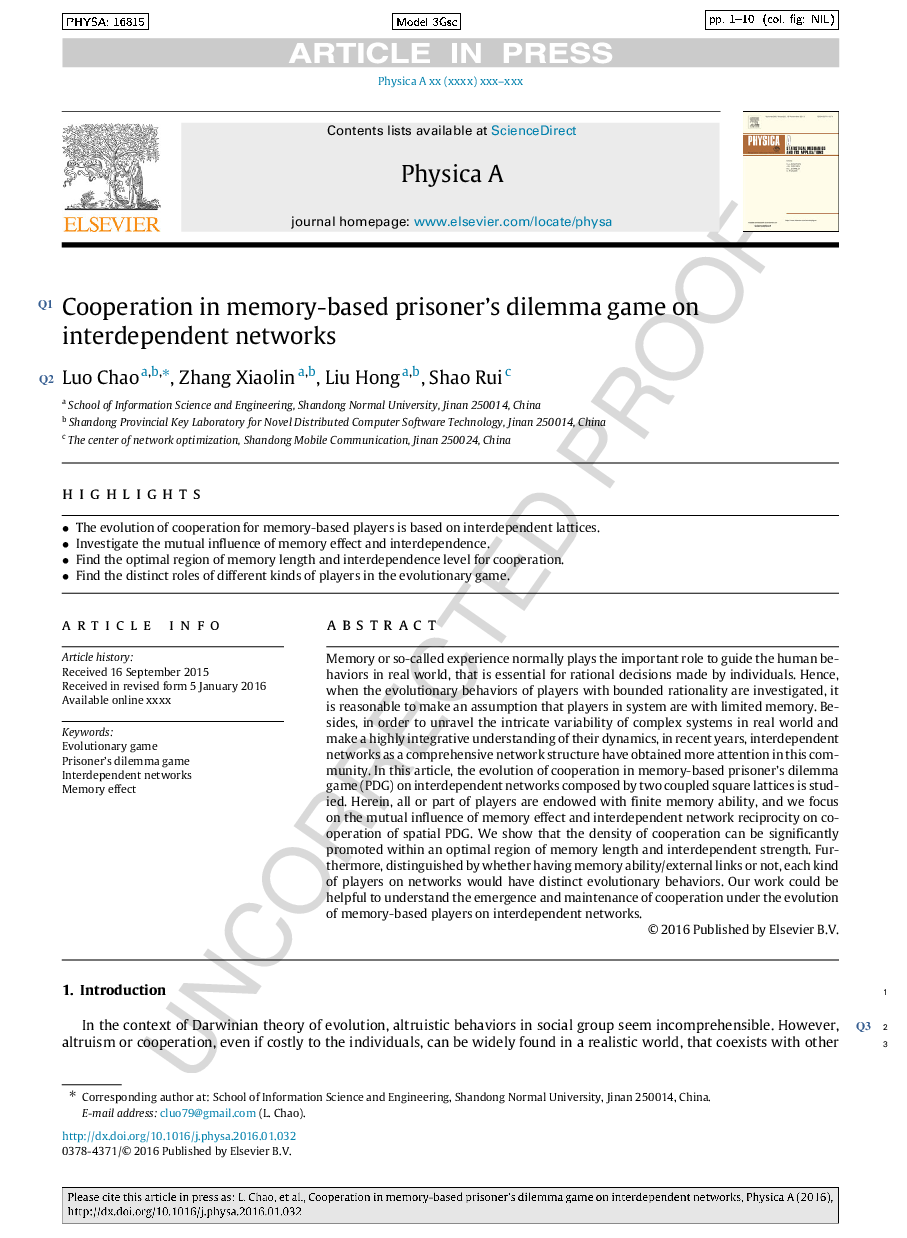| Article ID | Journal | Published Year | Pages | File Type |
|---|---|---|---|---|
| 7378119 | Physica A: Statistical Mechanics and its Applications | 2016 | 10 Pages |
Abstract
Memory or so-called experience normally plays the important role to guide the human behaviors in real world, that is essential for rational decisions made by individuals. Hence, when the evolutionary behaviors of players with bounded rationality are investigated, it is reasonable to make an assumption that players in system are with limited memory. Besides, in order to unravel the intricate variability of complex systems in real world and make a highly integrative understanding of their dynamics, in recent years, interdependent networks as a comprehensive network structure have obtained more attention in this community. In this article, the evolution of cooperation in memory-based prisoner's dilemma game (PDG) on interdependent networks composed by two coupled square lattices is studied. Herein, all or part of players are endowed with finite memory ability, and we focus on the mutual influence of memory effect and interdependent network reciprocity on cooperation of spatial PDG. We show that the density of cooperation can be significantly promoted within an optimal region of memory length and interdependent strength. Furthermore, distinguished by whether having memory ability/external links or not, each kind of players on networks would have distinct evolutionary behaviors. Our work could be helpful to understand the emergence and maintenance of cooperation under the evolution of memory-based players on interdependent networks.
Related Topics
Physical Sciences and Engineering
Mathematics
Mathematical Physics
Authors
Chao Luo, Xiaolin Zhang, Hong Liu, Rui Shao,
